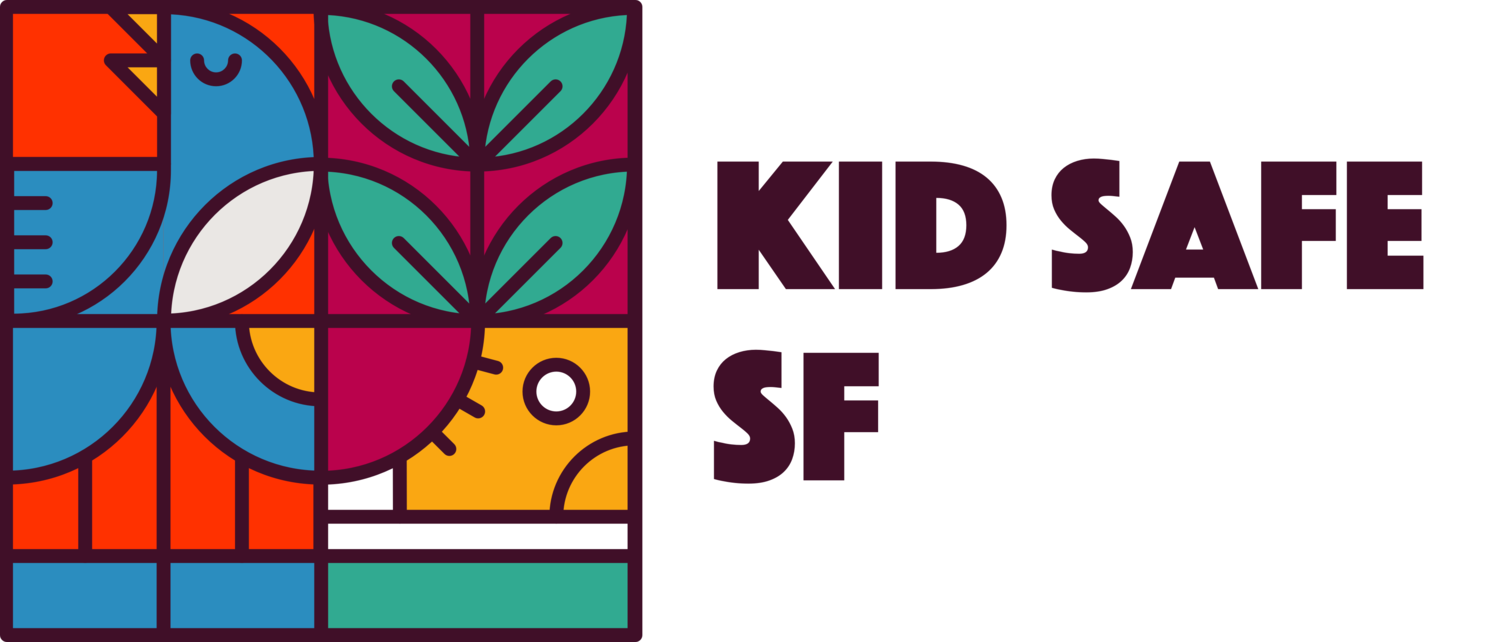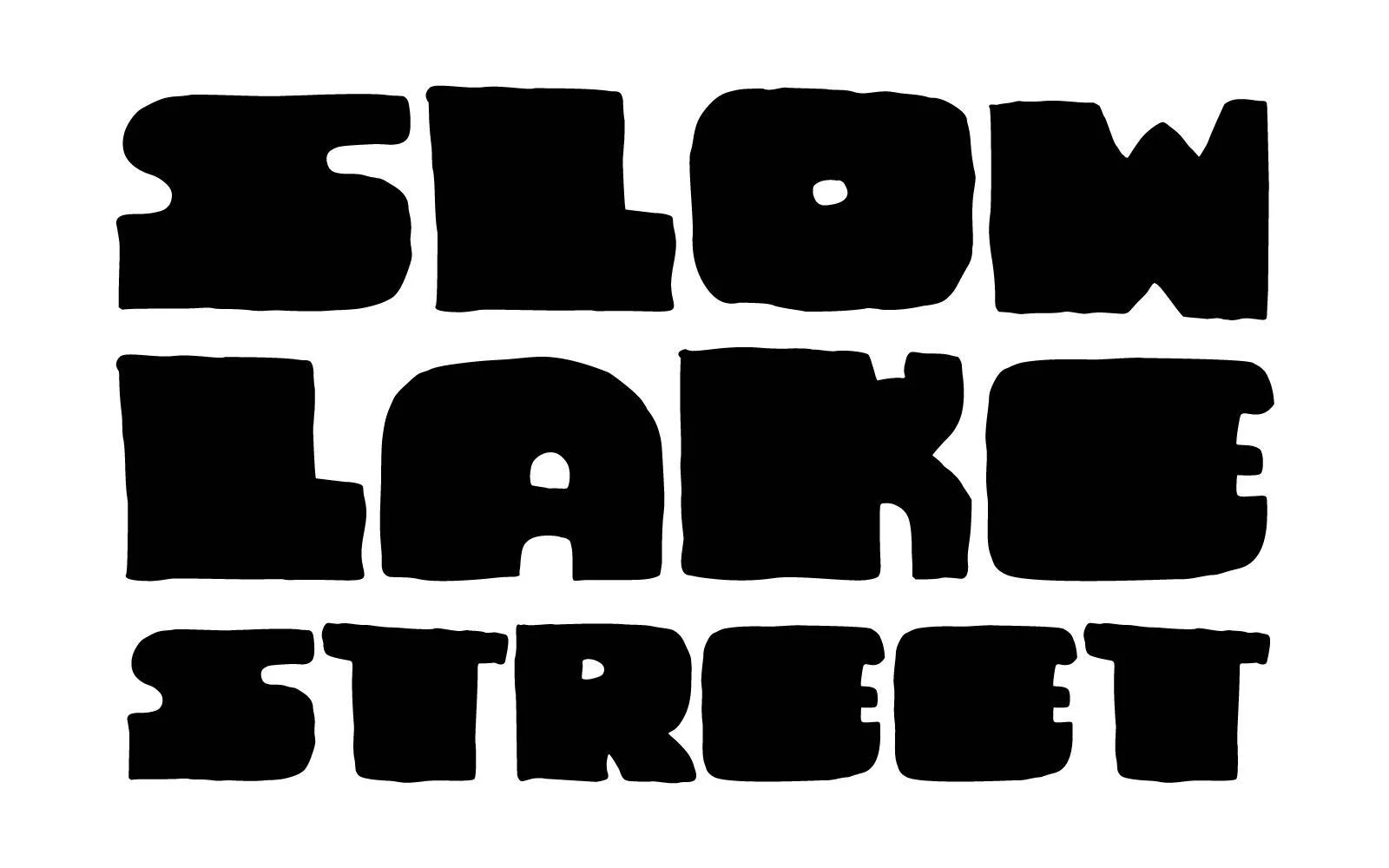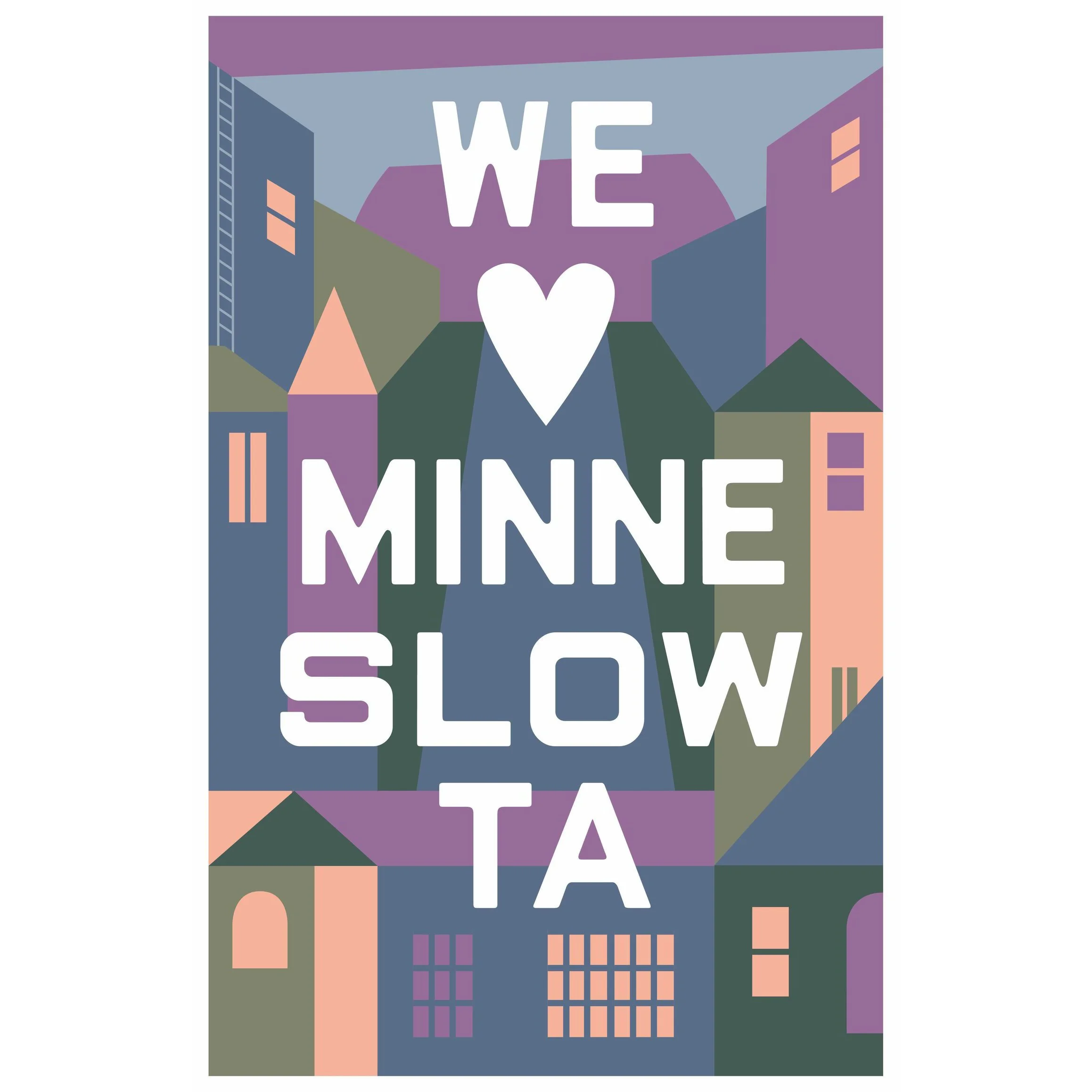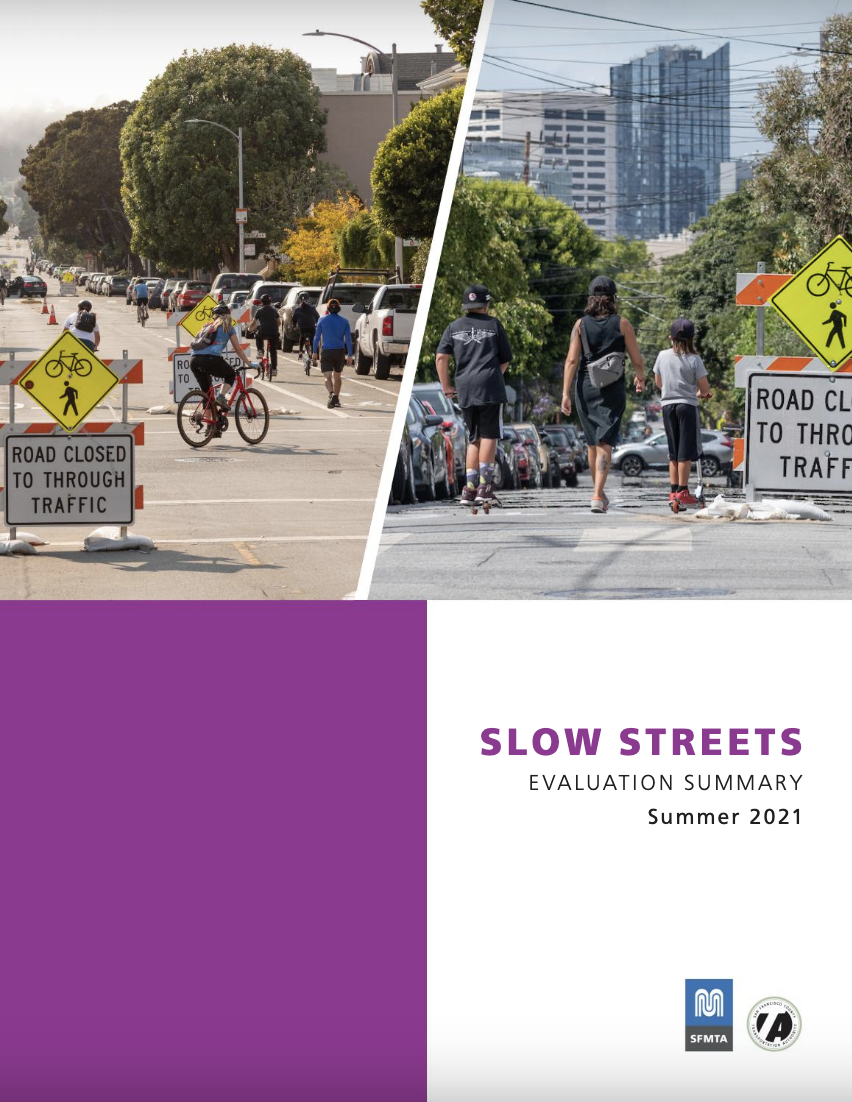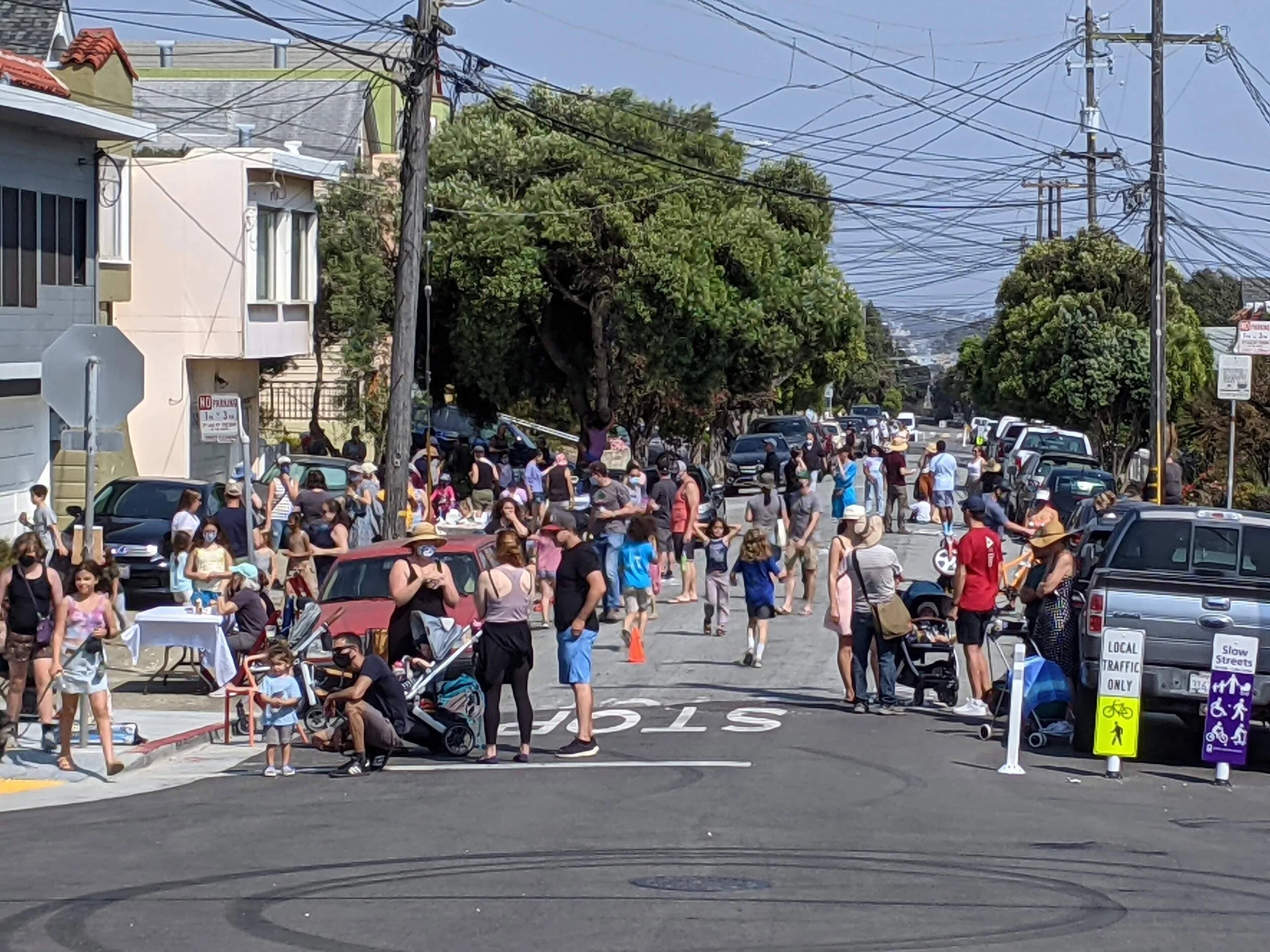
San Francisco’s Slow Streets Are Now Permanent
Slow Streets create green transportation options, connect neighbors, build community, and benefit local businesses
Sign up to receive updates and action alerts about Slow Streets from Kid Safe SF
What is a Slow Street?
Slow Streets limit through traffic to create safe space for people to walk, bike, roll, skate, run, or otherwise use the street for transportation or recreation outside of vehicles.
They are not closed to all cars. People may drive cars for local access to get to their homes or businesses on Slow Streets.
Why do we need them?
While Slow Streets were created to provide safe spaces for recreation during the pandemic, thousands of San Franciscans now rely on these safe spaces for daily trips to school, work, and shopping districts on foot and bike.
San Francisco has a goal of 80% of trips by sustainable transportation by 2030, and if we’re going to get there, we need a network of Slow Streets to help us get there.
Slow Streets Performance Dashboard
The San Francisco Municipal Transportation Agency established speed and vehicle volume targets for Slow Streets in December 2022. Slow Streets have a target speed of 15mph and target vehicle volume of 1000 cars per day.
KidSafe SF operates a network of Telraam S2 traffic sensors on Slow Streets and across San Francisco. These sensors track speeds and vehicle volumes on 8 of the 16 Slow Streets.
Learn more about the Telraam program and help collect traffic data from your own home or business.
Kids, families, and seniors use Slow Streets to get to school and work safely
Safe for kids
Slow Streets reduce collisions. They provide safe routes for kids walking and biking to school.
Good for climate
Vehicles are the no. 1 source of emissions in San Francisco. Safe routes help more people choose biking and walking for short trips.
Good for community
Streets with less traffic encourage neighbors to stop, meet, and talk, increasing community and building resilience.
Good for access
Local car access is permitted, so neighbors on Slow Streets can drive to their homes, while limiting faster through traffic.
Connect with your local Slow Street group
Slow Shotwell
Join the Central Mission Neighbors in advocating for Slow Shotwell
Slow Cabrillo
Join Richmond Family Transportation Network in advocating for Slow Cabrillo
23rd Ave
Join Richmond Family Transportation Network in advocating for Slow 23rd Ave
Golden Gate Ave
Join North of the Panhandle Neighborhood Association to advocate for Golden Gate Ave.
SFMTA report
Slow Streets are a massive success. Let’s build on them and make them even better
Build community in your neighborhood
